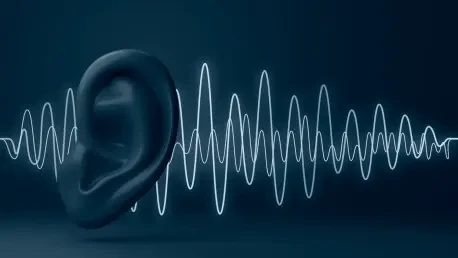The familiar voice guiding Scottish commuters through bustling railway stations has been replaced. In a stunning development, Gayanne Potter’s comforting announcements have given way to Iona, an AI-generated voice. Powered by ReadSpeaker, this shift has ignited a public uproar, raising poignant questions about the increasing dominance of AI technologies. Could a technological advancement originally intended to complement human creativity inadvertently be silencing the very voices it sought to elevate?
Navigating the Ethical Maze: Importance of AI in Creative Sectors
AI’s infiltration into the realm of creativity has become more pronounced each day. Industries like voice acting have witnessed a vibrant transformation, bringing to light societal concerns regarding job displacement and the protection of human creative endeavors. Discussions have intensified around intellectual property rights and artists’ autonomy in an era heavily influenced by automation. With AI’s reach extending far and wide, the necessity to safeguard the integrity and originality of human creativity demands immediate attention.
Controversial Innovation: Ethics of AI Voice Replacement
Potter’s unsettling experience reflects a broader narrative unfolding in the shadow of technological advancement. Allegations that AI technology has mimicked Potter’s distinctive voice without appropriate consent have fueled a bitter controversy. As economic factors such as cost efficiency and scalability influence decisions favoring AI over humans, ethical questions emerge. What does this precedent mean for artists and voice actors whose intellectual property could be vulnerable to unsanctioned use?
Industry Voices: Perspectives on AI’s Impact
Voices of experts and those directly impacted, such as Potter, reveal a complex web of perspectives on AI’s influence within creative spheres. Potter herself was shocked by the remarkably similar tone of Iona, uncovering profound issues around permission and usage of her voice. Experts argue for a balanced reflection on AI’s benefits, such as increased accessibility and innovation, and the drawbacks, including potential exploitation and diminished human-centric creativity.
Proactive Measures: Protecting the Rights of Creators
The evolution of AI technologies necessitates proactive strategies to secure creative rights against infringement. Individuals in creative industries must adopt vigilant measures to ensure their intellectual property remains protected. Advocating for modernized legal protocols and thorough contract negotiations on voice usage provides a defense against potential exploitation. Creators should act strategically, engaging in exhaustive dialogues about their contributions, ensuring their voices continue to resonate authentically.
The reality encapsulates a shifting landscape where ethical and legal frameworks must evolve in response to technological portals opening across industries. Tech-driven advancements require a nuanced approach that respects human ingenuity. As society moves forward, reflections on these transformations can prompt actions to protect human creativity and maintain sound ethical boundaries around AI’s rapid integration. Future dialogues must tackle the balance of embracing innovation while honoring the depth and vibrancy of human expression.









